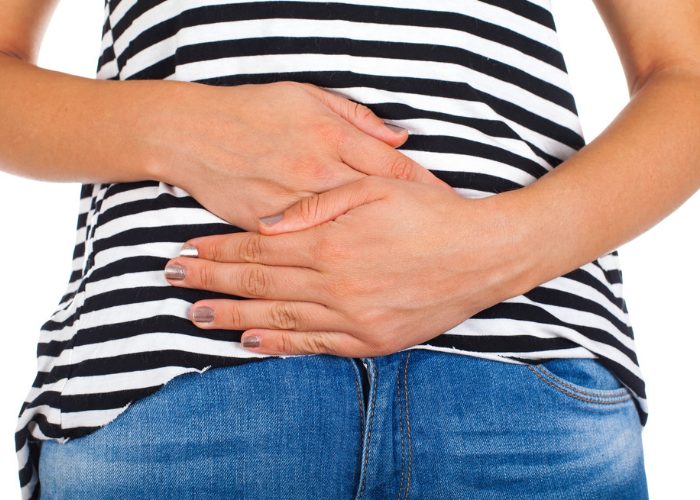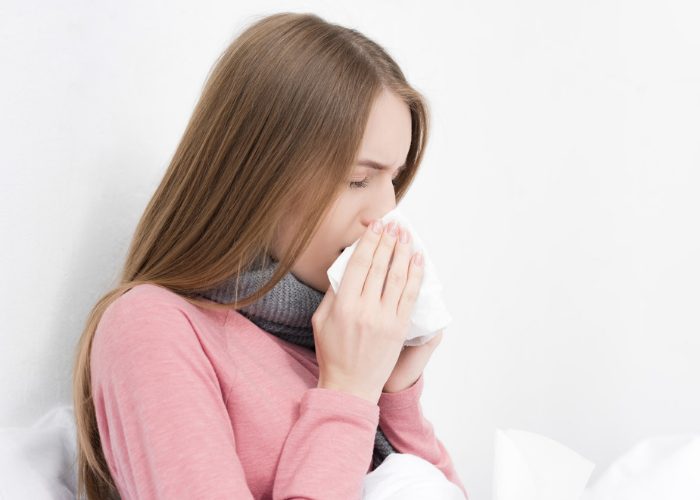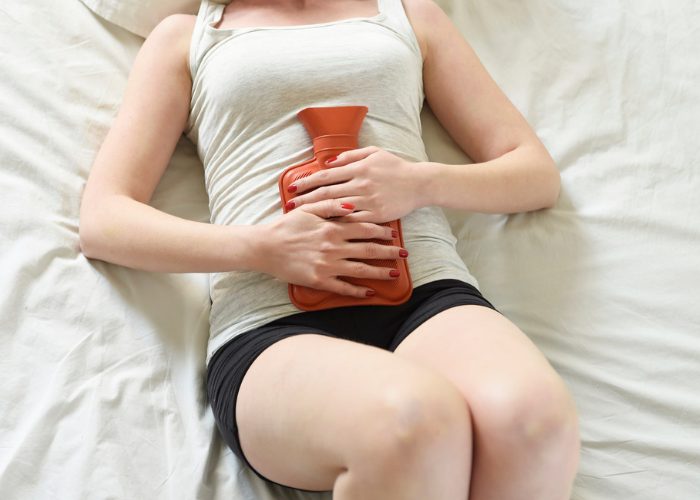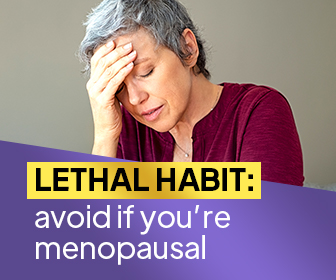Your hormones are one of the most important ways that your body regulates essential functions. Hormones play a role in almost every process in the body. It is the slow signaling system that tells your organs and tissues what to do. Controlling your hormones and ensuring that they are well-balanced is an essential part of health and fitness.
While testosterone and estrogen are well-known hormones, there are a variety of hormones that are involved in bodily processes, with their own effects and influences. Check out these six signs that your hormones are off balance as well as the natural methods you can use to establish balance and improve your health, fitness, and wellbeing.
Signs Your Hormones are Off-Balance
Your hormones are a key modulator of health, so its unsurprising that they provide you with signs and warnings when they’re off-balance. Many hormones, like the sex hormones testosterone and estrogen, are associated with mental health and your day-to-day experiences. Here are some of the top signs your hormones are out of whack:
Sign #1: Poor Sleep

Poor sleep is something that affects millions of Americans each year, but did you ever consider that your sleepless nights or difficult mornings could be related to the balance of hormones in your body? Melatonin is the hormone that regulates sleep. So an improper balance of melatonin is one cause of sleep disturbances.[1]
Melatonin is found in many whole foods like meat, whole grains, fruits, and vegetables.[2] This means that poor diet can be a real issue disrupting your hormones. A low-quality diet that is high in processed foods and low in fresh fruits, vegetables, and other nutrient-packed foods can contribute to imbalanced levels of melatonin. If your sleep is poor, look to your diet and lifestyle, as you may be ruining your own hormonal profile!
How to Fix it
If your sleep is poor, it can contribute to a cycle of worsening hormonal health and further insomnia. The best way to improve your hormonal profile is to sleep more, which may seem counter-intuitive. However, just like negative habits will perpetuate, so will positive ones. A single night of good sleep is the first step towards re-balancing your hormones. With a combination of exercise and stretching, tire yourself out before bed to establish a restful sleep. If you wake during the night, try a stretching session.
Melatonin is also influenced by the foods you eat, as mentioned above, so be sure to increase your intake of wholefoods. You can even supplement melatonin in pure form to increase your sleep quality and quantity. But if your diet is a problem then it is a better choice to start with this structural issue. A better diet and better sleep can have huge effects on your health and fitness too. If you’re not tired by the end of the day, decrease your “screen time” in the evening and increase your daily exercise regime.
Sign #2: Always Tired

Being tired all the time may be related to poor sleep (after all, less and worse sleep will make you more tired), but it has its own array of causes. Tiredness and fatigue is a complicated mental and physical process, however, it may be an indicator that your hormones are impeding your cognitive function.
Energy (in the sense of willpower reserves and wakefulness) is regulated by testosterone and estrogen levels, circulating melatonin, blood insulin, and even your adrenaline levels.[3] Being tired and low-energy is thus a great indicator that something is going wrong with your hormones, even if it is far more difficult to figure out the specific problem.
Tiredness should not be a common trend for anyone who is eating, sleeping, and exercising well. You may become tired and fatigued if you work a heavily demanding job (either physically or psychologically), but proper lifestyle can mediate these effects. If you’re constantly tired no matter how much you sleep, or you’re tired on your days off when you’re lying around the house, it’s time to look deeper at your hormonal health.
How to Fix it
Sleep is the first place to start. We’ve already discussed the importance of sleep, but being well-rested is a huge part of increasing your daily energy supply. The difference between 7 and 8 hours of sleep can be as great as 17% testosterone, which makes a real difference to your energy levels and exercise performance.
Your diet is a key player in energy levels too. If you’re on a diet, you may experience reduced energy levels and feel tired. It’s therefore essential to ensure that you’re keeping calories as high as possible while losing weight. Focus on adding more cardio rather than cutting calories severely. You may also want to increase your intake of iron, magnesium, and B vitamins.
Sign #3: Bloating

Bloating is a common problem – if you eat too much, or too quickly, you’re going to experience some distension of the abdomen and feel slow, sluggish, and heavy. However, if you feel bloated for extended periods of time without eating, you’re probably experiencing some of the negative effects of a poor testosterone-to-estrogen ratio.
The ratio of testosterone to estrogen in your body regulates a number of key processes like sexual health, muscle growth, fat loss, and the retention of water. This last one is the important part – if you’re high in estrogen, you’ll experience a greater level of bloating and water retention. You can combat these symptoms with hydration, diet, and proper potassium supplementation. But be mindful that they are often they are caused by underlying hormonal imbalances.
If you’re a pre-menopausal woman, or a man between the age of 35 and 45, the odds are even greater that your feelings of bloating are linked to your hormones. During these periods, both men and women are more susceptible to bloating as the hormones are erratic and unpredictable. As you age, odds of bloating increase and the importance of keeping an eye on your hormones increases with them.
How to Fix it
Bloating can be combated through diet and exercise if it is associated with water retention. Increasing your water intake and the levels of potassium in your diet may be enough to reduce your experience of bloating. Be sure to consume more water when you are experiencing bloating, or during menstruation, to ensure that you don’t retain too much water. Hot water has been shown to help reduce bloating, so try swapping your usual cold glass of H20 for a hot one. Reducing your salt intake is another great way to combat water retention.
Other forms of bloating can result from poor quality diet and the blocking of the digestive tract. Consuming more fiber can improve your clearance rates and reduce the excessive build-up of food in the gut. Fiber has beneficial effects on hormones (like thyroid and insulin) and also improves the health of the gut microbiome, improving future digestive health.
Sign #4: Constant Illness

If you’re constantly suffering with small, nagging illnesses like the cold, flu, and painful headaches or migraines this may be a sign that you’re experiencing systemic health problems which almost always involve the hormones. The immune system has a whole group of hormones dedicated to its function known as lymphokines.[4] If you’re constantly ill, there’s a good chance that the hormones affecting the way that your immune system works are not in a healthy balance.
The immune system in general is sensitive to stress and balancing the lymphokines requires a great deal of conscious effort. Your immune system and the hormones that govern it are affected by nearly every diet and lifestyle choice you make, and can be disrupted by:
- Stress
- Poor diet (i.e. low in fruit, vegetables, and healthy fats)
- A sedentary lifestyle
- Poor sleep quality
- Poor hydration
- Alcohol consumption
- Smoking
Illness is common, especially as you age, but being subject to small illnesses consistently over a prolonged period of time should ring alarm bells. You may be tempted to ignore these small problems, but they can be indicative of a larger problem of poor hormonal and lifestyle balance.
How to Fix it
The immune system and its lymphokines are closely related to your diet through healthy fats and essential micronutrients. Recent research shows that the key vitamins in the maintenance and function of the immune system are vitamins A, C, E, as well as vitamin D.[5] These vitamins should be a large part of your diet, but increasing your intake may reduce your incident of illness and rebalance the lymphokines.
Healthy fats like omega-3s and supplements like milk thistle can also contribute to improved immune function by boosting the health and efficiency of the liver. The liver is a huge player in overall health and reducing your risk of infection. A cod liver oil supplement is a great choice, providing omega-3 fats, as well as vitamins A and D.
Sign #5: Poor Exercise Performance

If you’re a keen athlete or fitness enthusiast, you’re probably keeping close track of your exercise performance. If you notice a long-term depression in your developmental trajectory, or even an inexplicable short-term plateau, there’s a strong possibility that your hormones are playing a key role.
Exercise is stressful by definition and the way your body responds to exercise-induced stress is modulated through the hormone system. Exercise causes a short-term depression in your hormones, shifting to the cortisol system, in order to produce long-term favorable adaptations like improve strength, muscle mass, and density of the ligaments and tendons.
Overtraining is a risk for those with a serious commitment to exercise – it occurs when the stress you put on your body is greater than the recovery of which it is capable. There are two sides to the overtraining equation: over-training and under-recovering, which is a poor management of your recovery variables (nutrition, hydration, sleep, and mobility).
If you are training regularly at a high intensity and noticing long-term decreases in performance, it could be a sign that your hormones are not conducive to positive training effects and should be given more attention.
How to Fix it
Exercise performance is influenced by many factors and it is difficult to achieve sustainable results. Your performance is affected by technical efficiency, diet, nutrition, sleep, hydration, mobility, and many other factors. However, if your hormones are causing serious problems and you’re experiencing overtraining, there are a few key ways to improve your experience. Moreover, making the effort will get you back to the best shape of your life.
Your first priority should be increasing your time spent resting and recovering. Recovery is the most important part of the training process and under-recovery is the fastest way to begin suffering from overtraining. Take sufficient rest between sessions. Plan your training to ensure that heavy sessions are punctuated by lighter technique- and recovery-focused sessions.
Improving your recovery is also a great way to balance your hormones by returning to lower stress levels and a healthier internal environment. Proper recovery relies on a well-balanced diet with enough calories and protein to meet your body’s needs, as well as a wealth of vitamins and minerals.
Sleep should meet a minimum of 8 hours a night, while hydration should be a serious concern. Keep in mind that if your pee is distinctly yellow, you’re not drinking enough water.
Sign #6: Female-Specific Signs

Hormonal imbalance is a regular, often-predictable experience for many women. Women are faced with monthly bouts of severe hormonal fluctuation and are well aware of how it affects their bodies and minds. There are, however, other signs that should not be considered normal and demonstrate a more serious hormonal problem.
Unusual experiences and sensations during your menstruation cycle are a common indicator that your hormones are in a state of flux. The menstruation cycle is closely linked to concentrations of oxytocin, estrogen, and progesterone.
These key hormones are easily disturbed by environmental and psychological changes and induce notable changes. Self-awareness is a great way of keeping up with these problems. Consider keeping a log with a journal or smartphone app to identify where hormonal problems occur in your cycle.
Weight gain, water retention, and bloating are common occurrences for many women during their menstrual cycle. What’s more, many women experience intense period pain. If you already experience bloating and weight gain, focus on the timing. That is, if you are experiencing unusually severe symptoms or during unusual times, this can indicate hormonal imbalance and irregularity.
How to Fix it
A diet rich in calcium[6] and other key electrolytes is a great way to ensure that your body is healthy throughout the menstrual cycle, as well as reducing your risk of breast cancer. Calcium and potassium are key for reducing the negative experiences of bloating and weight gain associated with the menstrual cycle. They also combat specifically-female problems like breast cancer, osteoporosis, and hot flashes.
A more consistent diet and effective exercise routine will also help to regulate the long-term fluctuation of hormones. This is especially the case with the peaks and troughs of the menstrual cycle. Exercise is a great modulator of the hormones surrounding mood. It can aid with the release of oxytocin, balance testosterone and estrogen, and generally improve your control over your body and its hormonal functions. Plus, it is a great way to relax and improve self-confidence.

Summary: What Should You Do Now?
Your hormones are not only relevant when they are playing up and showing symptoms: they are a consistent “background noise” within your body that you may be ignoring. The hormones are a messaging system much like the nerves, and these six key signs are as much an indicator of health problems as pain or nausea.
When your hormones are telling you that something is wrong and they are out of balance, it is important to pay attention and make meaningful changes to your life. The hormones determine how your body works and feels, but they are determined by your lifestyle and diet in a major way. You can adjust the inputs to your hormones to ensure that you are in control of your hormones and giving your body the best chance.
If any of these signs sound familiar, try these lifestyle changes first. If the symptoms continue to worsen, or don’t alleviate after a few weeks, try consulting an endocrinologist for a full, medically-accurate diagnosis. You may be surprised at what you find!
Action Steps: Tips for Keeping Hormones Happy
- Improve your sleep by exercising and avoiding screens later in the evening.
- Ensure your water and potassium intake is adequate to combat bloating and water retention.
- Improve your intake of healthy fats and micronutrients like vitamins and minerals.
- Focus on rest and recovery in your workout plan, to ensure the best results and improved health.
- Be sure to supplement with cod liver oil, and improve your intake of vitamin D.

Share this Image On Your Site
References
- [1] https://www.ncbi.nlm.nih.gov/pmc/articles/PMC3354573/
- [2] http://onlinelibrary.wiley.com/doi/10.1034/j.1600-079X.2003.02111.x/full
- [3] http://en.cnki.com.cn/Article_en/CJFDTOTAL-SLKZ200001008.htm
- [4] http://www.nejm.org/doi/pdf/10.1056/NEJM198710083171506
- [5] https://www.nature.com/nri/journal/v8/n9/abs/nri2378.html
- [6] https://www.ncbi.nlm.nih.gov/pubmed/17106282








